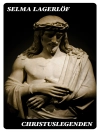In ‘The Living Letter, Written with the Pen of Truth, ‘ J. Church masterfully explores the intertwining themes of authenticity and moral integrity through an epistolary narrative that reflects the complexities of human experience. Set against a backdrop of societal upheaval and introspection, the text employs a lyrical and contemplative style that draws the reader into a deeply personal journey. Church’s articulate prose is interspersed with poignant reflections and vivid imagery, creating a resonant commentary on the human condition, which aligns with the literary traditions of both romanticism and modern existentialism. J. Church, an author renowned for his deep philosophical insights and poignant storytelling, draws upon his diverse background in philosophy and theology to shape this work. His previous engagements in social activism and community development inform the moral framework within the narrative, allowing him to explore the delicate balance between societal expectations and personal truth. This rich tapestry of experience lends authenticity to Church’s exploration of the pivotal questions that permeate his writing. ‘The Living Letter’ is not just a book; it is an invitation for readers to engage in self-reflection and moral inquiry. For those who cherish literature that challenges the status quo and embraces the complexities of truth, Church’s thoughtful and evocative prose will leave a lasting impact, encouraging a transformative dialogue between the text and the self.
关于作者
J. Church remains an enigmatic figure in the literary world, with much of the details about their life and background shrouded in mystery. ‘The Living Letter, Written with the Pen of Truth’ stands as a testament to Church’s keen insight into the human experience and the use of allegorical narrative to explore profound truths. The book delves into themes of authenticity, communication, and the search for understanding in an often bewildering world. Church’s literary style is marked by a deeply reflective and evocative prose, inviting readers to contemplate the layers of meaning within the text. While the breadth of Church’s literary contributions is not extensively cataloged, ‘The Living Letter’ has been recognized for its thoughtful expression and the articulate conveyance of complex ideas. The absence of biographical detail adds a certain mystique to Church’s work, compelling readers to focus on the content and quality of the writing itself, rather than the personal history of its creator. In this way, J. Church’s anonymity amplifies the universal relevance of their themes, allowing the ideas presented to resonate with a broad audience unencumbered by the confines of a narrowly defined authorial persona.












